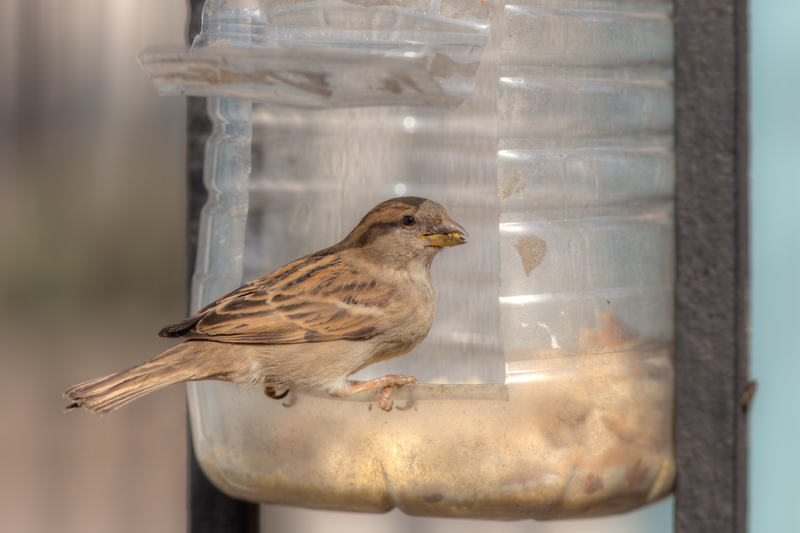Developing a Recycling Mindset in Kids From an Early Age: The Key to a Greener Tomorrow
Teaching children about recycling and sustainability is more important than ever. The earlier we instill eco-friendly habits and a recycling mindset in kids, the better chance we have of creating environmentally responsible citizens for the future. With global waste and pollution issues on the rise, prioritizing recycling education for children is a crucial step toward a sustainable planet. In this comprehensive, SEO-optimized article, we'll explore effective strategies to develop a recycling mindset in kids from the earliest years.

Why Fostering a Recycling Mindset in Kids Matters
A child's beliefs and values are shaped rapidly during their formative years. Learning about recycling from an early age:
- Creates a lifetime habit of responsible waste management
- Teaches children the value of materials and conservation
- Helps them understand cause and effect related to the environment
- Encourages them to share and inspire eco-friendly practices at home and school
- Empowers them to be proactive change-makers in their communities
The benefits of developing a recycling mindset in children extend beyond environmental impacts. Such lessons foster critical thinking, collaboration, and a sense of personal responsibility, nurturing well-rounded individuals.
How Early Should Kids Learn to Recycle?
There's no such thing as "too young" when it comes to introducing children to recycling. Even preschoolers can begin to grasp the concept of sorting waste and understanding the difference between reusable and disposable items.
- Toddlers (Ages 2-4): Can help with sorting colorful materials, learn words like "paper," "plastic," and "recycle," and participate in fun recycling games.
- Children (Ages 5-8): Capable of understanding why we recycle, recognizing recycling symbols, and taking on small family duties such as checking if items are recyclable.
- Older Kids (Ages 9+): Ready to explore the science behind recycling, get involved in school-based projects, and even advocate for greener practices in their communities.
Lead by Example: The Parent's Role in Teaching Recycling
Children learn best by observing and mimicking. If you want to nurture a recycling mindset in your kids, let them see you recycle consistently.
- Place labeled bins around the home and make sorting materials a fun family activity.
- Participate in community clean-ups and invite your child to join you.
- Talk about the importance of reducing waste--don't just do it, explain why you do it.
- Celebrate small wins! If your child reminds you to recycle or picks up litter, praise them for their environmental responsibility.
Interactive and Engaging Ways to Teach Kids About Recycling
Focusing on interactive, hands-on activities is the best way to develop a recycling mindset in kids from an early age. Here are some creative ideas:
1. Recycling Sorting Games
Gather different clean household items such as jars, newspaper, plastic bottles, and food containers. Have your child sort them into the correct bins: paper, plastic, glass, metal, or organic waste. Turn it into a competition or time challenge for extra excitement!
2. Upcycling Art Projects
Spark your child's creativity by challenging them to make art or toys from recyclable materials. Empty boxes can become castles, bottle caps can be transformed into mosaics, and cookie tins can get a second life as storage containers. This helps kids see the value in reusing and reducing waste.
3. Storybooks and Videos About Recycling
Many engaging children's books and online videos focus on the journey of recyclable materials or tales of eco-heroes. These stories make environmental concepts relatable and inspire a sense of wonder about what happens to our waste.
4. Visiting Local Recycling Centers
Consider organizing a family trip or a school excursion to a recycling facility or landfill. Seeing what happens to trash and recyclables firsthand leaves a lasting impression on children and makes recycling less abstract.
5. Adopt a "Recycling Hero" at Home or School
Designate a weekly "Recycling Hero" who is in charge of making sure items are sorted correctly. This rotating responsibility encourages accountability and makes kids proud of their efforts.
Building Sustainable Habits: Daily Practices for Kids
Consistency is crucial for developing any mindset, including one that favors recycling and sustainability. Model daily routines that promote eco-friendly choices:
- Always use reusable lunch containers, water bottles, and shopping bags
- Turn off lights and electronics when not in use
- Choose products with minimal or recyclable packaging
- Compost food scraps whenever possible
- Encourage kids to donate outgrown clothes and toys
- Practice repairing and repurposing items rather than discarding them
Multi-Channel Approach: Learning at School and Home
For a truly effective recycling education, lessons should be reinforced both at home and at school. Many schools have sustainability programs; parents should stay informed and align their home routines with school initiatives to prevent mixed messages. Communication between teachers and families about ongoing projects, recycling days, or community drives maximizes the impact and relevance of eco-lessons.
The Science and Logic Behind Recycling
Children are naturally curious about how things work. For older kids, teaching the science behind recycling can deepen their understanding:
- The recycling process: Explain how materials are collected, sorted, processed, and re-manufactured into new products.
- Benefits of recycling: Less landfill waste, saving energy, reducing pollution, and conserving resources.
- Consequences of not recycling: Resource depletion, environmental degradation, and harm to wildlife.
Common Questions Kids Have About Recycling
Be prepared for curious questions such as:
- "Where does our garbage go?"
- "Why does plastic take so long to break down?"
- "Can we recycle everything?"
- "What happens if I throw plastic in the regular trash?"
Overcoming Challenges: Making Recycling Child-Friendly
Some aspects of developing a recycling mindset in children pose challenges--containers that are too tall, unclear recycling guidelines, or confusing symbols. Here's how to overcome them:
- Use color-coded stickers or signs on bins with easy-to-understand illustrations for little ones.
- Keep bins accessible, preferably at a child's height, and always in the same spot.
- Create simple household recycling rules and post them as a fun, illustrated chart.
- Celebrate progress with incentives--stickers, extra playtime, or a "green champion" certificate.
Reinforcing the "Why": Connecting Recycling to the Big Picture
Kids are motivated when they understand the bigger impact of their actions. Regularly connect recycling to broader environmental issues:
- Explain how recycling conserves resources like trees and water
- Show them news stories or documentaries about pollution or successful recycling initiatives
- Participate in community recycling events and beach or park cleanups
- Start a home garden using compost made from kitchen scraps
Getting Creative: Fun Recycling Mindset Activities for Kids
- DIY Recycling Relay: Create a race in which kids must quickly sort a pile of "trash" into the right bins.
- Eco-Friendly Crafts: Try simple crafts using old magazines, buttons, jars, and fabric scraps.
- "Green Detective" Scavenger Hunt: Send kids searching for items in the home that can be recycled or reused.
- Kids' Environmental Journals: Encourage children to keep a weekly diary about their recycling and sustainability actions.
- Storytelling Sessions: Invite children to invent stories in which recycling heroes save the planet!
Resources for Teaching Recycling to Children
There are plenty of helpful tools to boost your child's green education:
- Interactive websites (such as National Geographic Kids, EPA's Recycle City, and local council resources)
- Children's books about recycling, such as "The Adventures of a Plastic Bottle" or "Michael Recycle"
- Online games and apps that make sorting and recycling fun
- Community programs and workshops for hands-on learning
- Printable posters and infographics to decorate recycling stations at home

Long-Term Benefits of a Recycling Mindset in Children
Developing a recycling mindset in kids from an early age delivers benefits that echo into adulthood:
- Better Environmental Stewardship: Children carry their habits into adult life, influencing families, friends, and communities.
- Personal Responsibility: Kids who recycle regularly develop a sense of ownership over their actions and surroundings.
- Enhanced Problem-Solving Skills: Making choices about how to reduce, reuse, or recycle materials sharpens critical thinking.
- Global Citizenship: Awareness of global environmental issues prepares kids to become informed advocates for a healthier planet.
- Healthier Homes and Communities: Reducing waste means cleaner surroundings and supports local recycling economies.
The Ripple Effect: Kids as Sustainability Leaders
Never underestimate the power of a child's influence. Enthusiastic young recyclers can change family habits, inspire school-wide initiatives, and lead community action. By equipping children with knowledge and passion for sustainability, we empower the next generation to tackle climate and waste challenges head-on.
Conclusion: Start Today to Shape Tomorrow
Developing a recycling mindset in kids from an early age isn't just an environmental imperative--it's an investment in their character and future. Every small action, from sorting waste to upcycling crafts, plants a seed of eco-consciousness that will grow for decades.
_Encourage curiosity, lead by example, celebrate your child's green efforts, and watch as they blossom into caring, responsible guardians of the Earth._
So, why not start developing a recycling mindset in your children today? The planet--and future generations--will thank you.